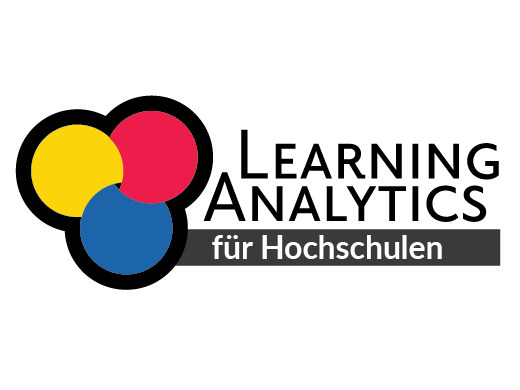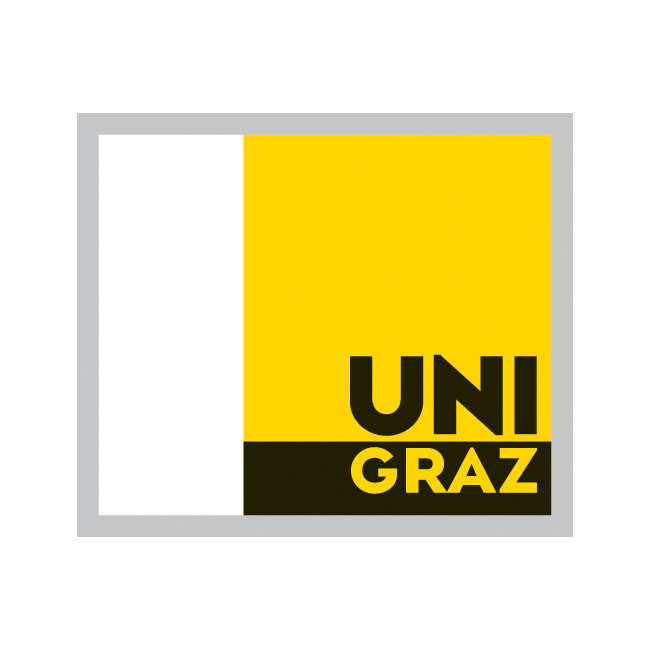


Learning Analytics for higher education
Graz University of Technology, University of Graz, University of Vienna
Learning-Analytics-Team
About
General Course Information
The course deals with the topic of learning analytics with a special focus on university teaching. It not only provides a basic introduction to the topic, but also shows current examples from the Austria-wide project "Learning Analytics - Students in Focus", presents the media-didactic recommendations and describes the implementation of necessary peer consultations. Likewise, the developed results in the field of data protection and ethics are shown and hints for a sustainable anchoring of learning analytics measures are given.
The course is primarily aimed at university stakeholders, but also at teachers and others interested in the subject area.
Content
Course Content
The MOOC provides a basic introduction to the topic of "Learning Analytics in Higher Education" and consists of a total of 7 units.
- Introduction and definition
- Learning analytics integration
- Example of learning analytics dashboards in the field of learning management systems
- Media didactic recommendations for the use of learning analytics
- Peer student advice on the use of learning analytics
- Privacy & ethics in the use of learning analytics
- Learning analytics measures and learning analytics applications in university teaching
Course Goals
After completion of the online course
- Know the definition of learning analytics and how to differentiate it from related disciplines.
- know successful learning analytics dashboards
- are able to name the media didactic recommendations
- know about the useful use of learning analytics in peer consultations
- be able to name aspects of data protection and ethics in the field of learning analytics
- know the first steps for the sustainable implementation of learning analytics at universities
Previous Knowledge
None. Basic knowledge of higher education is an advantage
Course Procedure
The course consists of a total of 7 lessons, each of which covers important aspects of the use of learning analytics in university teaching. In each lesson, corresponding video content with the respective experts is provided, as well as further accompanying material, which was developed in the project "Learning Analytics - Students in Focus". Each lesson ends with a self-assessment. The successful completion of all self-assessments leads to a course certificate.
Certificate
For actively participating in the course you will receive an automatic certificate which includes your username, the course name as well as the completed lessons. We want to point out that this certificate merely confirms that the user answered at least 75% of the self-assessment questions correctly.
Licence
This work is licensed under CC BY 4.0Kursübersicht
- Lektion 1: Einführung und Begriffsbestimmung
- Einführung und Definition
- Herausforderungen von LA und Argumente für LA
- Lektion 2: Lernförderliche Integration von Learning Analytics
- Lernförderliche Integration von Learning Analytics (Ebene Studium)
- Selbstregulierendes Lernen mit Learning Analytics unterstützen – Fokus Lernende
- Lektion 3: Beispiele für Learning-Analytics-Dashboards im Bereich von Learning-Management-Systemen
- Learners Corner
- Lektion 4: Mediendidaktische Empfehlungen
- Mediendidaktische Empfehlungen auf LV-Ebene
- LA mit Flipped Classroom
- LA auf LV-Ebene
- Lektion 5: Peer-Studierendenberatung
- Datengestützte Peer-Studienfortschrittsberatung
- Lektion 6: Datenschutz und Ethik beim Learning-Analytics-Einsatz
- Datenschutz
- Ethik
- Kriterienkatalog
- Lektion 7: LA-Maßnahmen LA-Anwendung in der Hochschullehre
- Qualifizierung von Peer-Studierendenberater:innen
- Peer-Studierendenberater:innen im Interview
- Qualifizierung von Lehrenden
- Allgemeine Empfehlungen für Learning Analytics an Hochschulen
Course Instructor
Learning-Analytics-Team
Martin Ebner is an educational computer scientist who teaches and conducts research on topics related to technology-enhanced teaching and learning. Here, he is particularly concerned with Massive Open Online Courses, the impact of Learning Analytics and is considered a major proponent of Open Educational Resources. In addition to his involvement in national and international committees, he is also very committed to the school and higher education system in Austria. In line with his motto ("making education accessible for all"), he is one of the founding members of the iMooX platform.
Daniel Handle-Pfeiffer heads the Digital Teaching team at the Center for Teaching and Learning at the University of Vienna, where he is particularly concerned with the innovative further development of digital teaching formats. He gained experience in university teaching at the Center for Teacher Education, University of Vienna. Daniel Handle-Pfeiffer is involved in various positions (e.g. project management, coordination, work package management) in a variety of projects under the "Hochschulraum-Strukturmittel" national funding platform (a selection of projects: iMooX.at, Open Education Austria Advanced, Moodle 2022). At the University of Vienna, he completed his teaching degree in Computer Science and Computer Science Management.
Gisela Kriegler-Kastelic holds a degree in psychology and heads the Testing and Examination team (Team Testen und Prüfen) at the Center for Teaching and Learning at the University of Vienna. She is responsible for the development and quality assurance of psychometrics-based entrance and aptitude tests as well as for the (further) development of evidence-based online instruments for study choice decisions and test preparation. She also brings her expertise in the area of study ability/study success factors and (university) learning to the topic of learning analytics. Prior to her employment at the University of Vienna, which started in 2007 in the Bologna Office, she worked in process and project management.
Larissa Bartok holds degrees in psychology (Dipl.-Psych) and statistics (BA) and is a member of the Testing and Examination team at the Center for Teaching and Learning at the University of Vienna. In addition, she is currently working on her PhD in the research field of academic success. Earlier, she worked as a psychometrician at the Federal Institute for Educational Research, Innovation & Development of the Austrian School System (BIFIE), which later became part of the Ministry of Education (BMB/BMBWF). Larissa Bartok's research interests include higher educational research, test development and large scale assessments; she prefers to work with the R programming language.
Marcela Hubert works at the Center for Teaching and Learning (CTL, University of Vienna) as part of the team Student Research and Peer-Learning (Wissenschaftliches Arbeiten und Peer-Learning) as project staff. Previously, she was a writing mentor and writing assistant at the CTL and she has been teaching academic writing in English at Austrian universities of applied sciences since 2019. She studied Transcultural Communication as well as Translation and Interpreting at the University of Vienna and Newcastle University. Her focal points are academic writing in English as well as peer student-counselling on topic such as study (dis)satisfaction and study progression, learning and studying strategies.
Tiantian Tang is a staff member at the Center for Teaching and Learning at the University of Vienna and a doctoral candidate and lecturer in media education at the same university. Previously, she completed a degree in German Studies in 2013 and the Master programme in German Literature in 2016 in China. During her master's studies, she collaborated on a project on digital learning and developed her interest in the field of e-learning in the process. Tiantian also brings in-depth experience as an instructional designer for the web. At the CTL, she is part of the Digital Teaching team (Digitale Lehre).
Christoph Winter has been working at the Center for Teaching and Learning at the University of Vienna since 2017. He coordinates the e-multipliers program and is concerned with the implementation and evaluation of innovative teaching concepts. He completed his teaching degree in Biology and Environmental Studies as well as History, Social Studies and Political Education at the University of Vienna. Since 2018 he is an external lecturer at the Center for Teacher Education and the Department of Functional and Evolutionary Ecology, University of Vienna.
Robin Gleeson has been part of the Testing and Examination team at the Center for Teaching and Learning at the University of Vienna as a psychometrician since 2012. Until 2016, he also accompanied the introduction of the new school-leaving examination at the Federal Institute for Educational Research, Innovation & Development of the Austrian School System (BIFIE), having completed his diploma studies in psychology at the University of Vienna in 2012. During his studies, he worked, among other things, for the Testing and Counseling Center and as Head of the Testing Center at the Department of Psychological Diagnostics.
Login & Enrol Currently: 428 Participants
Free for all € 0.00
Partners

Graz University of Technology
Graz

University of Graz
Graz

University of Vienna
Wien
